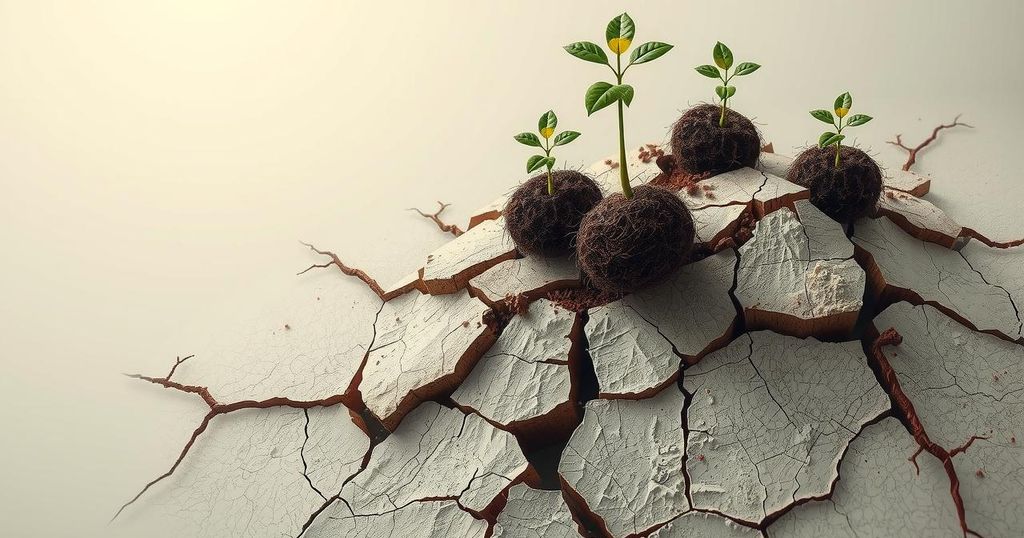Psychological Trauma Overshadows New Earthquake in Morocco

A 5.2-magnitude earthquake struck northern Morocco, recalling traumatic memories from the 2023 Atlas earthquake. Residents in Brikcha experienced fear and anxiety, though reports indicated no casualties or significant damage. Psychological trauma, particularly PTSD, remains a pressing issue among many Moroccans, exacerbated by the recent quake. Organizations are working to provide support amid state shortcomings.
On Monday night, a 5.2-magnitude earthquake struck northern Morocco, felt as far as the capital, Rabat, causing residents to recall the devastation from the 2023 Atlas earthquake. With its epicenter in Brikcha, within the Ouazzane province, the quake prompted immediate fear among locals, who were haunted by past traumas of loss and destruction.
Aicha Khayi, a resident of Brikcha, described her experience: “I was almost asleep when I felt the ground shaking beneath me. I ran outside and tried to wake up my neighbours.” She expressed her dread of being trapped under debris, echoing the distress she felt in September 2023, when she lost relatives in a previous earthquake.
Brikcha, situated in a less rugged mountain area, houses 25 villages and about 9,400 inhabitants. Unlike the remote Atlas region, Brikcha’s roads are more accessible. Nasser Jabour, head of the National Institute of Geophysics, indicated that the design of local structures and the earthquake’s magnitude reduced the risk of significant destruction.
Officials reported no casualties or major damages. In response to the quake, local authorities advised nearby residents to stay outdoors while assessing potential aftershocks. However, anxiety spread across extensive distances, compelling individuals from Tangier to Rabat to evacuate their homes with their valuables and to contact loved ones.
Mohamed El-Wardi, a Kenitra resident, recalled the communication blackout following the previous quake, sharing his distress over past losses: “Last time, we didn’t know anything until morning. I lost relatives in the Al-Haouz earthquake.” His sentiments were mirrored by an elderly woman reciting Quranic verses; the community gathered in prayer for those at risk.
Despite the frigid conditions, many citizens opted to remain outside, haunted by memories of the September quake’s devastation. Souhail Abounaim from Psychologues Maghreb noted, “The fear and distress after yesterday’s earthquake are linked to many Moroccans’ past experiences with the Al-Haouz disaster,” highlighting the ongoing psychological impact on the population.
The 2023 earthquake resulted in nearly 3,000 fatalities and over 5,600 injuries, with about 500,000 people still displaced as they await reconstruction assistance. Post-traumatic stress disorder (PTSD) has reportedly affected numerous Moroccans, intensified by the recent quake, as there is minimal governmental support for psychological recovery.
The recent earthquake in Morocco revived traumatic memories of the devastating 2023 Atlas earthquake, causing widespread panic and fear among residents. While the latest tremor resulted in no casualties or significant damage, the psychological impact remains profound. Many individuals continue to struggle with PTSD from prior experiences, compounded by inadequate state support for mental health. The ongoing efforts of organizations like Psychologues Maghreb highlight the necessity for increased resources and support in addressing psychological trauma in affected communities.
Original Source: www.newarab.com







